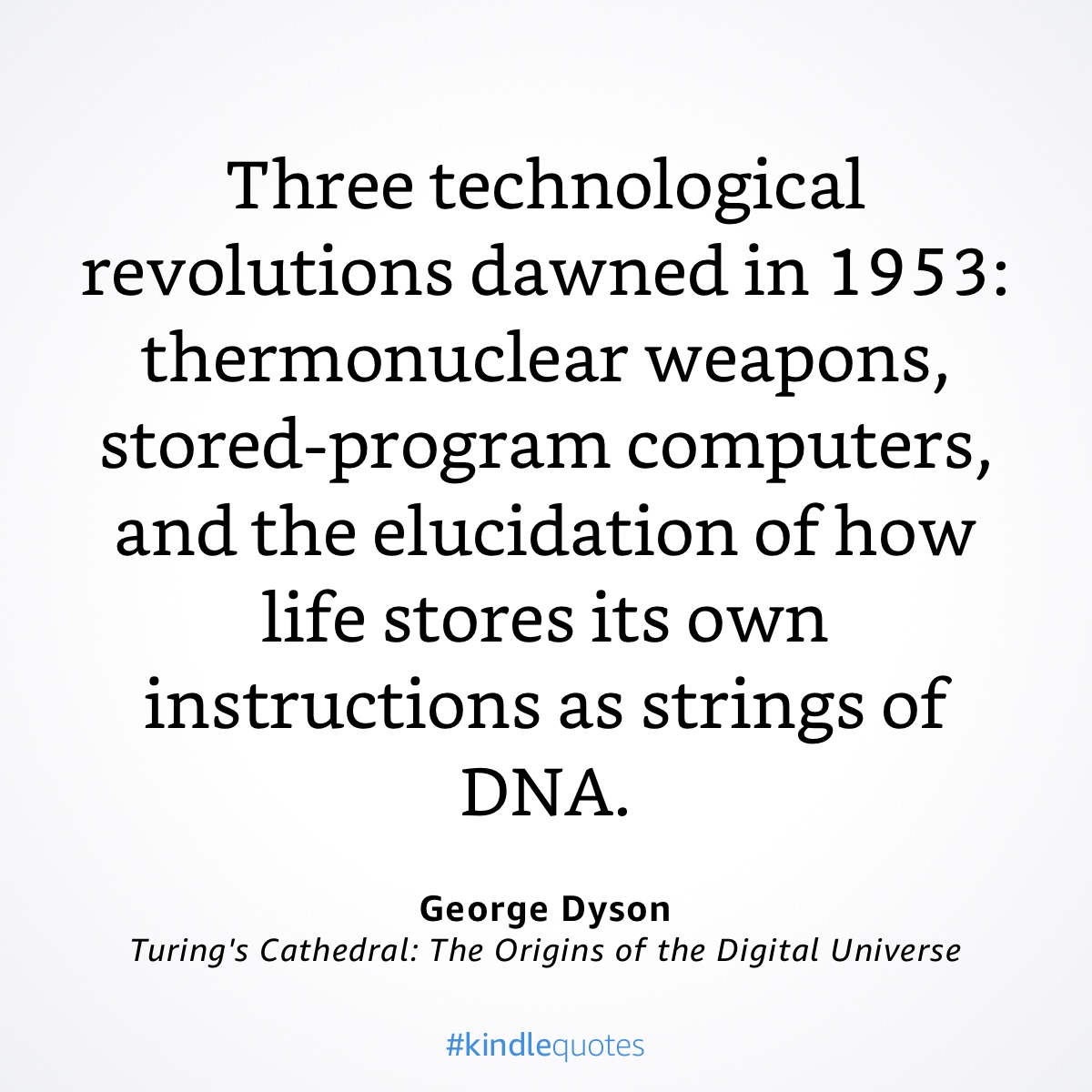
Turing's Cathedral: The Origins of the Digital Universe



Norbert Wiener, as one of the early pioneers of information technology, perceived the digital computer as being fundamentally different from the mechanical technologies that preceded it. It was a game changer: a new kind of machine with the potential to usher in a new age—and, ultimately, perhaps rend the very fabric of society. Yet, Wiener’s views
... See moreMartin Ford • Rise of the Robots: Technology and the Threat of a Jobless Future
To battle disorder and allow information to grow, our universe has a few tricks up its sleeve. These tricks involve out-of-equilibrium systems, the accumulation of information in solids, and the ability of matter to compute. Together these three mechanisms contribute to the growth of information in small islands or pockets where information can gro
... See moreCesar Hidalgo • Why Information Grows: The Evolution of Order, from Atoms to Economies
So that’s that: Babbage realized machines could do math. Turing added that they could also run programs. Von Neumann figured out how to build the hardware, and Shannon showed how the software could do things that didn’t at first look like math problems.